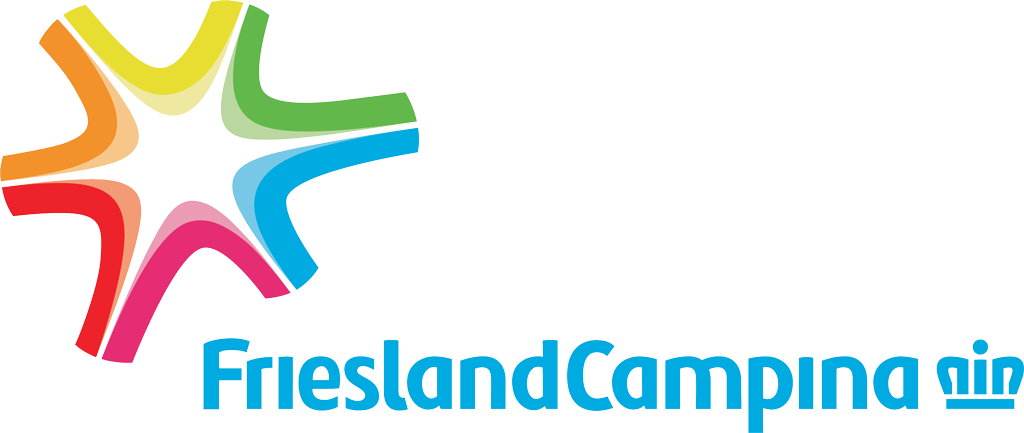Milk, you’d say, it doesn’t get more Dutch than that. But the long-standing traditions have evolved. Innovations at farms, processing plants and cooled transport have transformed dairy into a highly international industry. The Dutch dairy giant FrieslandCampina is no exception. With annual revenue of 11.3 billion euro, it is one of the largest dairy companies in the world.
Purpose: nourishing by nature
FrieslandCampina stands for better nutrition for the world and a good living for farmers, in the present and for generations to come. The company is fully owned by a cooperative of over 19,000 Dutch, German and Belgian dairy farmers. On behalf of its member farmers, FrieslandCampina strives for sustainable growth and value creation. That means they bring wildly varying product categories (from pharmaceutical ingredients to branded cheese) to over a hundred different markets. And they keep adding new products and markets to the portfolio. This is all orchestrated from the headquarters in Amersfoort and offices in 31 countries.
Business Structure
FrieslandCampina’s diversity of activities is divided into five market-oriented business groups: Consumer Products Europe, Middle East & Africa (EMEA); Consumer Products Asia; Consumer Products China; Cheese, Butter & Milkpowder; and Ingredients. For those interested in the bigger picture, the organizational structure is best explained by the interactive organogram on the FrieslandCampina website.
The business group Consumer Products EMEA consists of sixteen operating companies, one of which is Foodservice. Foodservice is one of the strategic growth pillars for FrieslandCampina. Foodservice provides professional customers with high-quality products such as cream, butter and mixes for ice cream, desserts, fillings and sauces. Clients tend to be restaurants, hotels, bakers, confectioners, fast food chains and catering companies throughout Europe. The most prominent brand names for this market include Debic, Hollandia, Gastro and Campina Professional. Foodservice also commercializes a range of branded products customized to out-of-home consumption, such as single portion packages of Chocomel, Campina, Optimel and Appelsientje.
Vacancy: International Marketing Manager Foodservice
FrieslandCampina Foodservice is currently active in 22 European countries. As culinary traditions and preferences vary per industry, there is a highly localized different approach. But as the Foodservice industry is maturing, a lot can be gained by building brands coherently across borders and implementing best practices in communication and activation in all markets. This development has created a new vacancy: International Marketing Manager Foodservice (hereafter: Marketing Manager).
Purpose of the role
The Marketing Manager will focus on the activation of the premium brand Debic. They will translate the vision for Foodservice into an actionable plan for online and offline communication, activation and promotions that can be leveraged internationally. Responsibilities range from improving image and perception in existing markets to building brand awareness in new and emerging markets. This includes ensuring visibility at POS and wholesalers, implementing best-in-class activation and promotion programs, acting as a senior support to the Category Leader and managing the international agency network. The Marketing Manager is the manager of a Communication Specialist and the Brand Leader’s right hand.
Type of projects
The Marketing Manager is involved in high-impact projects. Typical projects could be the international implementation of online communication, developing a new activation toolkit, updating brand positioning and brand guidelines, or taking the lead in the development of umbrella brand and activation campaigns. For example, there has been a very successful pilot in the French and Belgian market with a magazine for food professionals, highlighting trends that are easy to adopt such as Café Gourmand: an espresso combined with mini-versions of traditional desserts such as panna cotta and crème brûlée. Now, other countries don’t need to create their own magazines with their own trends; the Marketing Manager can drive the development of an international version which can be shared across all markets, bearing in mind that a single brand may have very different levels of maturity and awareness across different markets. In order to come up with new concepts for campaigns, the Marketing Manager needs to be close to markets, operators, the internal culinary community. Monitoring campaign implementation, tracking the reach of campaign targets, implementing corrective measurements and managing budgets will be a key element of this role. A very engaging role for a professional with a passion for food.


